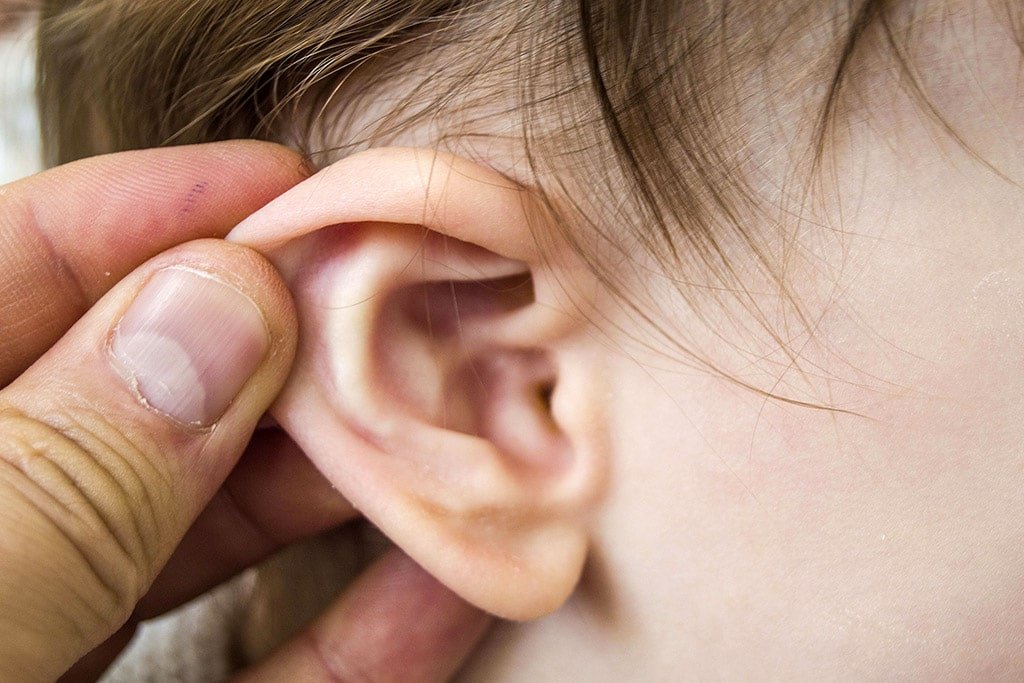Ear infections are among the most common reasons children visit the doctor or ER. Known medically as otitis media, middle ear infections affect many children, particularly between the ages of six months and three years. While they’re usually not dangerous, ear infections can cause significant discomfort and sometimes lead to complications if left untreated.
At First Priority ER, we know how concerning it can be when your child is sick. Here’s what parents should know about what causes ear infections, the warning signs to watch for, and when it’s time to seek emergency care.
What Causes Ear Infections?
Most ear infections begin after a child has had a cold for several days. The illness causes swelling in the eustachian tube the narrow passage connecting the middle ear to the back of the throat. When this tube becomes inflamed, viruses or bacteria can travel upward, leading to fluid buildup and infection behind the eardrum.
Which Children Are at Higher Risk?
Some children are more likely to develop ear infections than others. Risk factors include:
- Being under five years old, since younger children have shorter eustachian tubes.
- Attending daycare, where frequent colds are common.
- Exposure to cigarette smoke, which irritates the eustachian tubes.
- Having allergies or conditions like cleft palate or Down syndrome.
- Being bottle-fed while lying flat, which can allow milk to enter the eustachian tube.
Breastfeeding can lower the risk because breast milk contains protective antibodies. Positioning matters too babies should always be held upright during feedings.
Signs Your Child May Have an Ear Infection
Older children may simply tell you their ear hurts. But younger children often can’t explain what’s wrong. Watch for signs like:
- Unexplained fever
- Fussiness or irritability
- Tugging or pulling at the ear
- Trouble sleeping
- Difficulty hearing quiet sounds
- Fluid draining from the ear
These symptoms don’t always confirm an ear infection, but they’re strong signals it’s time to see a doctor.
How Doctors Diagnose Ear Infections
Doctors examine the eardrum with a small lighted instrument called an otoscope. They look for signs of infection such as fluid behind the eardrum, changes in its color, or swelling. While the eardrum may appear red during common viral illnesses, not every red eardrum requires antibiotics.
Treatment Options
Many ear infections improve on their own within a day or two. If your child has mild symptoms and no high fever, a doctor may recommend waiting 24–48 hours to see if things get better naturally.
Antibiotics can be prescribed if:
- The child has a high fever (over 102°F / 39°C)
- Symptoms are severe or worsening
- There’s fluid in the ear canal
- The infection doesn’t improve after two days
Doctors may also recommend acetaminophen or ibuprofen to ease pain and fever. Ibuprofen should only be given if your child is well-hydrated, and never to infants under six months without medical approval. Children typically feel better within a day of starting antibiotics, but it’s important to finish the full course.
When Ear Tubes May Be Needed
For children with frequent infections or fluid that lingers in the middle ear and affects hearing, a specialist may recommend ear tubes. These tiny tubes are surgically placed to help equalize pressure and allow fluid to drain. It’s a short procedure performed by an ear, nose, and throat surgeon, and children usually go home the same day.
When to Call the Doctor or ER
Most ear infections can be managed by your pediatrician. However, you should seek immediate medical attention if your child:
- Is younger than six months old and you suspect an infection
- Has a fever lasting more than 48 hours
- Experiences repeated vomiting or severe irritability
- Has redness or swelling behind the ear
- Is unusually drowsy or difficult to wake
- Has trouble hearing or doesn’t respond to sounds
- Remains in severe pain despite treatment with fever-reducing medicine
These could be signs of a more serious infection or complication that requires urgent care.
Prevention Tips
While you can’t prevent every ear infection, there are steps to lower your child’s risk:
- Wash hands frequently to reduce the spread of germs.
- Breastfeed your baby if possible.
- Never put your baby to bed with a bottle.
- Transition from bottle to cup by the first birthday.
- Avoid second-hand smoke exposure.
- Keep vaccinations up to date, including the pneumococcal and annual flu vaccines.
- Limit pacifier use if your child is prone to repeated ear infections.
First Priority ER: Here When You Need Us
Most ear infections improve without complications, but some require urgent attention. At First Priority ER in New Braunfels and Cibolo, we’re here 24/7 to evaluate ear pain, provide treatment, and ease your child’s discomfort. With onsite diagnostics and emergency-trained physicians, you won’t have to wait in long hospital lines when your child needs care quickly.
Ear infections may be common, but that doesn’t mean they should be taken lightly. Trust First Priority ER to provide the expert, compassionate care your family deserves anytime, day or night.



